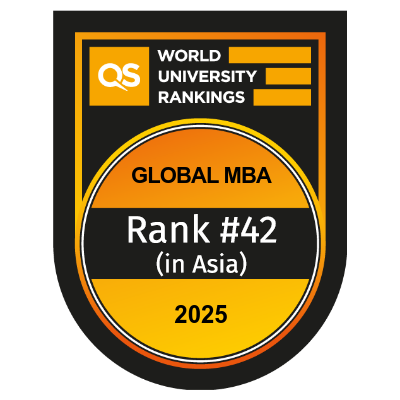Specialised Research Opportunities
Scholars at KJSIM have the chance to engage in trending research areas. The programme encourages interdisciplinary collaboration, allowing researchers to explore innovative solutions to complex data challenges.
Mode:
Regular
Location:
Vidyavihar - Mumbai
Course Duration:
3 Years
Programme Code:
ST1753
In the transforming landscape of technology, the PhD in Data Science and Technology at K J Somaiya Institute of Management (KJSIM) stands as a beacon for aspiring scholars and researchers who are passionate about pushing the boundaries of data-driven innovation. This advanced programme is designed to cultivate the next generation of thought leaders who will drive the transformation of industries and societies through the power of data.
The global reliance on data for decision-making, problem-solving, and value creation has never been greater. Advancements in data analysis technology have revolutionised how businesses access, store, and process information, enabling organisations to efficiently extract and apply insights from vast datasets. The data analysis technology market is on the brink of explosive growth, with an estimated market size of USD 80.5 billion in 2024, projected to soar to USD 941.8 billion by 2034. With a robust CAGR of 31.0%, this decade will be crucial for technological innovation, reshaping how industries harness data to achieve success.
Given the surging demand in this field, there has never been a better time to pursue a PhD in Data Science and Technology. KJSIM offers an exceptional programme designed to equip scholars with the expertise needed to lead in this dynamic and rapidly evolving industry.


Scholars at KJSIM have the chance to engage in trending research areas. The programme encourages interdisciplinary collaboration, allowing researchers to explore innovative solutions to complex data challenges.

Learn from and collaborate with a distinguished faculty comprising leading experts in data science and technology. These mentors bring a wealth of industry experience and academic knowledge, guiding scholars through their research journey and helping them to produce impactful work.

The programme offers numerous opportunities for collaboration with top industry partners, enabling scholars to apply their research in real-world scenarios. These partnerships provide valuable insights into industry trends and help bridge the gap between academic research and practical application.

Scholars benefit from access to state-of-the-art technology, including high-performance computing clusters, advanced software tools, and extensive datasets. These resources are critical for conducting high-quality research and staying at the forefront of developments in the field.

The first semester requires full-time attendance, while the second semester offers a more flexible schedule to accommodate research needs.

Become part of an international community of researchers and thought leaders in data science. The programme offers opportunities to attend global conferences, publish in top-tier journals, and collaborate on international research projects, enhancing your academic profile and impact.


| Sr.No. | Research Guide | Qualification | Research Areas |
|---|---|---|---|
| 1 | Prof. Dr. D G Jha | Ph.D. (University of Mumbai, 2012) | Data Management, Business - Domain Information Systems/Applications, Data Driven Decision Making |
| 2 | Prof. Dr. Sindhu S Singh | Ph.D. (SNDT University, 2016) | Technology Management, E-commerce, M-Commerce, Machine Learning |
| 3 | Prof. Dr. Jaya Iyer | Ph.D. (SNDT University, 2016) | E-Government, ICT, M-Government, Digital Government, Public service sector, E-learning, E-business, Adoption of website quality, Cloud computing, MVC architecture. |
| 4 | Prof. Dr. Bharati V Wukkadada | Ph.D. (JJT University, 2015) | Technology Management, data science (machine learning, R, python, Networking (wired & wireless) |
| 5 | Prof. Dr. Kirti V Wankhede | Ph.D. (D Y Patil University, 2013) | Big data analytics, IoT analytics, Web development |
| 6 | Prof. Dr. Chandan Singhavi | Ph.D. (ITM University Raipur, 2019) | Technology Adoption and Integration, ICT Adoption in Education, Blockchain in Banking, ERP Implementation |
| 7 | Prof. Dr. Sangeetha Rajesh | Ph.D. (Annamalai University, 2022) | Artificial Intelligence, Machine Learning & Deep Learning, Gen AI in Business, Business Analytics, Audio Processing |
| 8 | Prof. Dr. Krantee Jamdaade | Ph.D. (University of Mumbai, 2019) | Data Science, Machine Learning and Artificial Intelligence |






